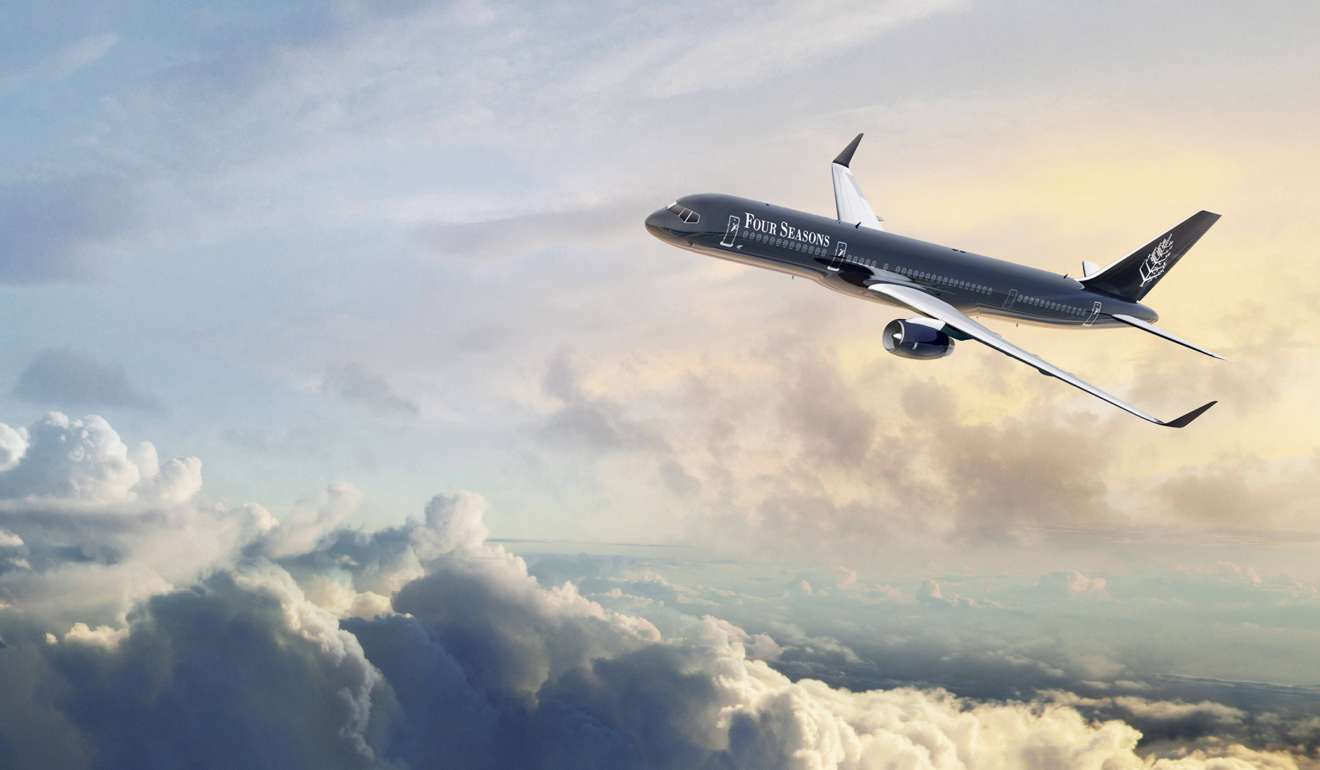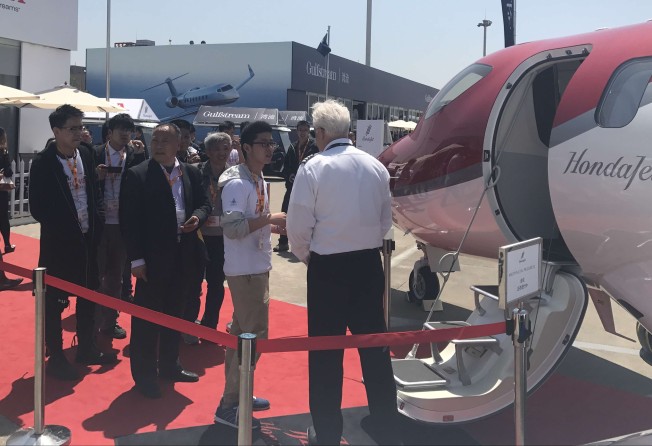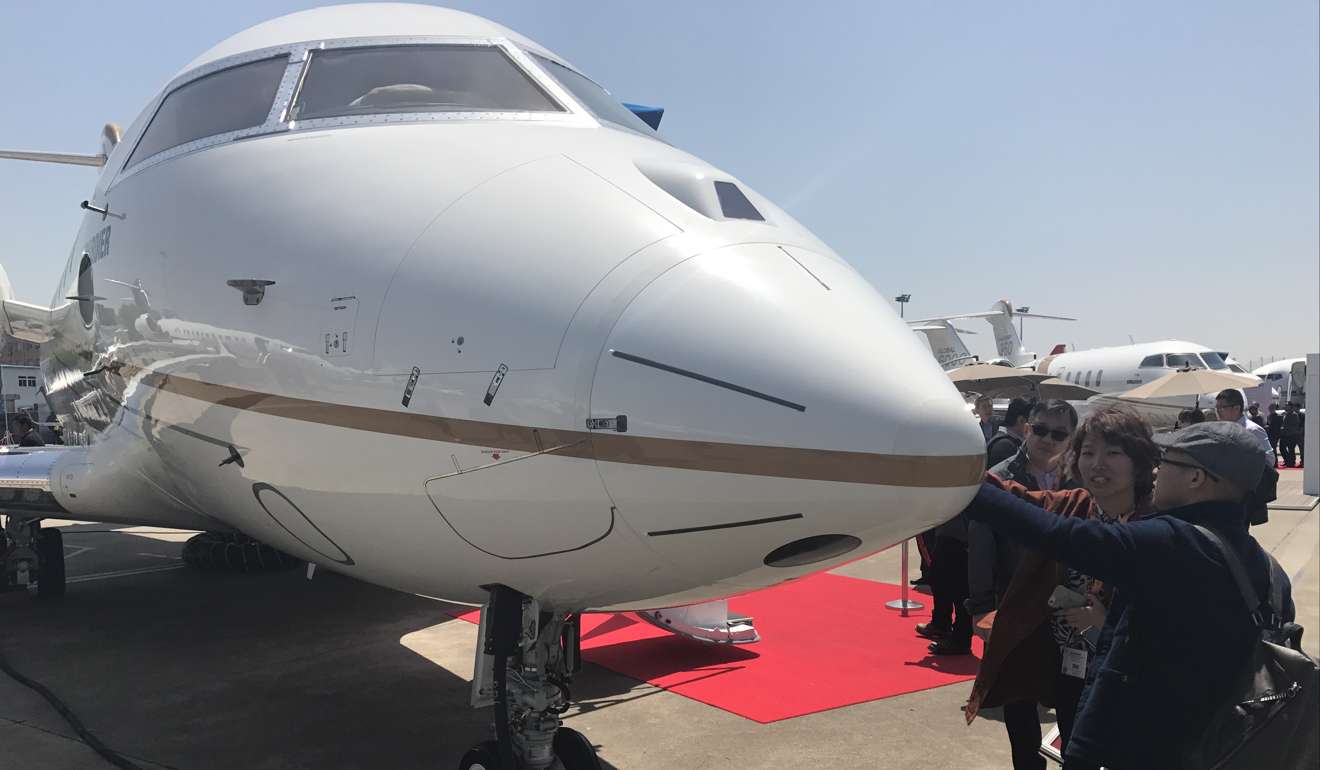
Business jet market recovers as tycoons look to the skies over China for ultimate comfort
New report says that based on financial progress and economic size, there is enough demand for 1,900 business jets to be operational in the country

The market for business jets in China has regained pace, after two years of woeful performance because of the government clampdown on excess and anti-corruption, as it invests in more airport construction, and deregulates aircraft ownership and operations, according to a latest study.
The Hurun Business Jet Owners 2017 report says that based on its financial progress and economic size, there is enough demand for 1,900 business jets to be operational in the country.
Mainland China had 466 business jets flying its skies at the end of 2016, with 114 individual business people owned 164 private jets.
The business jet market has shown strong signs of recovery since the start of the year, and the new models being launched by manufacturers are being snapped by Chinese billionaires with deep pockets, the report said.
The study was produced by Hurun Report, an organisation founded by Rupert Hoogewerf that focuses researching the Chinese super-rich.
Jean-Michel Jacob, president of Dassault Aviation Falcon in Asia Pacific, agrees: “The market is waking up after two quiet years. We have seen strong trends. More people are interested, and we are negotiating.”

Dassault is a Paris-based aircraft maker best known for its Falcon 7X jet, and expects to deliver its first 8X to a Chinese customer this year, which will be operated by Hong Kong-based management company HK Bellawings.
Jacob said the company was confident that it would “sell many 8X jets to Chinese customers” because they are no longer shy about owning a private jet.
China’s aviation jet market growth has been flat since 2014, after Beijing launched its an austerity campaign to crack down on corruption.
Companies and entrepreneurs have largely balked at buying or using private jets in an apparent effort to dodge potential investigations into their business operations or their connections to corrupt government officials.
In 2015, the number of business jets based in mainland China, Hong Kong, Taiwan and Macau rose just 4 per cent after 38 aircraft left the region to be based elsewhere, according to consultancy Asian Sky Group.
But the negative effects of the graft crackdown “didn’t last too long”, added Jacob.
“They are no longer shy about owning jets. They sign up, when they need aircraft.”
China’s super-rich have viewed private jets as an ultimate symbol of personal wealth and lofty social status.
Before late 2012, when the new current leadership took office, thousands of mainlanders spent liberally on them, as they did on extravagant cars, fashion and jewellery, despite being tagged as “nouveau riche.”
Between 2014 and 2016, however, with the anti-corruption drive in full flight, the mainland changed direction and outlined a determination to bolster its national commercial aviation industry, with jet manufacturers, technology companies and service providers becoming a new driver of national growth.

In China’s Five-year Plan for 2016-2020, at least 50 new civilian airports are now being built to facilitate business and leisure travels.
“The market is definitely going to grow,” added Andy Gill, a senior director with Honeywell Aerospace, which produces aircraft engines, avionics, auxiliary power units and other products in the country.
“We see great opportunities as business aviation travel gets smarter, and are capitalising on the fact that there is great demand for internet connectivity [during flights].”
Hurun Report said Chinese owners of private jets are aged at 58 on average, six years younger than those who made its global rich list.